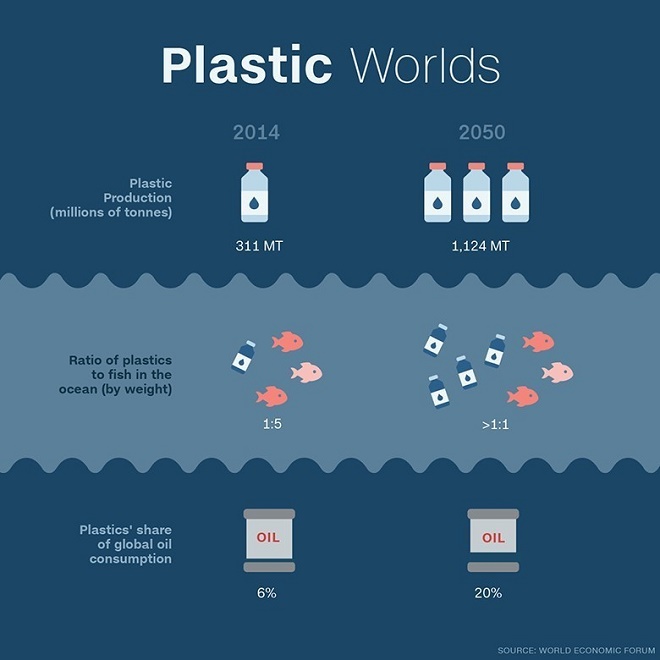online pharmacy buy spiriva inhaler with best prices today in the USA
They are the biggest regulator of the planet’s climate. The UN is currently hosting its first ocean conference to support the implementation of Sustainable Development Goal 14: conserve and sustainably use the oceans, seas and marine resources for sustainable development. Not since the 1982 passing of the Law of the Sea, have so many heads of state convened to discuss the future of the world’s oceans, including their effects on economic growth, human health, and the achievement of the SDGs. Individuals, too, can make a difference. Here are five ways to take better care of our seas: 1. Don’t use disposable plastic, and avoid plastic packaging Every year more than eight million tonnes of plastic are dumped into oceans, threatening marine life as well as affecting people's health through the toxic chemicals contained in plastic, which accumulate in the seafood and fish we consume. By 2050, there could be more plastic than fish in the sea, according to a joint World Economic Forum and Ellen MacCarthur Foundation report. Around 50% of the 300 million tonnes of plastic produced every year is used just once, then thrown away. Each of the 500 billion plastic bags used worldwide annually has a working life of only 15 minutes.
buy flagyl online https://www.soundviewmed.com/wp-content/uploads/2022/08/png/flagyl.html no prescription pharmacy
Plastic containers alone account for 14% of all litter. It takes 0.25 of a litre of oil and six litres of water to produce a one litre plastic bottle. What can you do about this? Choose paper or glass containers over plastic packaging when possible. Avoid plastic bags and bottles, disposable cups, cutlery, straws and coffee pods.
 2. Produce less waste
While plastics are the most common man-made objects found in the sea, almost all of your rubbish ends up in the ocean – six million tonnes a year, which is about the same as a million elephants!
Marine species worldwide become entangled in, or consume, fishing line, nets, ropes and other discarded equipment.
2. Produce less waste
While plastics are the most common man-made objects found in the sea, almost all of your rubbish ends up in the ocean – six million tonnes a year, which is about the same as a million elephants!
Marine species worldwide become entangled in, or consume, fishing line, nets, ropes and other discarded equipment. online pharmacy buy abilify with best prices today in the USA
buy levofloxacin online https://www.indcheminternational.com/wp-content/uploads/2022/08/png/levofloxacin.html no prescription pharmacy
Overall, we are buying too much stuff, and can consume far less.
buy synthroid online https://www.indcheminternational.com/wp-content/uploads/2022/08/png/synthroid.html no prescription pharmacy
Reuse and recycle! Ask yourself: do I need a phone, a tablet, a laptop and a desktop computer? How many shoes can I possibly wear? Avoid beauty products with lots of chemicals, which are flushed down the sink into our rivers and end up in the oceans.
buy symbicort inhaler online https://www.soundviewmed.com/wp-content/uploads/2022/08/png/symbicort-inhaler.html no prescription pharmacy
Share and pass on baby and kids' clothes and toys and fix the TV instead of buying a new one. 3. Eat less fish The oceans are overfished, and according to the UN’s Food and Agricultural Organisation (FAO), 32% of the world’s fish stocks are exploited beyond their sustainable limits (see chart below). Up to 90% of all large predatory fish such as cod, sharks, halibut, swordfish, marlin, grouper and tuna have been depleted. The solution? Eat less seafood and fish. When you do eat it, choose sustainably caught or farmed varieties. Organisations such as the Marine Stewardship Council, Seafood Watch, the WWF, and others provide useful consumer guides on what to buy. 4. Reduce your carbon footprint Increasing levels of carbon dioxide in the atmosphere contribute to rising global temperatures, including a warming of the oceans (Figure below). As a result, our seas become more acidic, leading to widespread coral bleaching, for example. Reducing the amount of CO2 each of us emits into the atmosphere might sound futile, but there are many ways to make a difference.
online pharmacy buy flexeril with best prices today in the USA
Drive less and drive better. Studies have shown 30% of the difference in miles per gallon is due to driving habits alone.
online pharmacy buy cenforce with best prices today in the USA
Carpool, bike, walk short distances. Watch what you eat and try to buy local. Buy regional vegetables and fruits and reduce the amount of meat and fish you consume. At home, insulate your house, watch your water and electricity consumption, use compact fluorescent light bulbs, unplug your electronics, and think about how many appliances you really need 5. How green is your pet? A 2008 study found that the pet food industry uses 2.48 million tonnes of forage fish each year for wet cat food alone.
online pharmacy buy spiriva with best prices today in the USA
Forage fish, such as sardines, anchovies and herring are eaten by top ocean predators such as tuna, cod and halibut, whose populations have plummeted by up to 90%. Also, do not flush cat litter down the toilet as it can contain pathogens harmful to marine life.
buy doxycycline online https://www.indcheminternational.com/wp-content/uploads/2022/08/png/doxycycline.html no prescription pharmacy
buy celexa online https://www.soundviewmed.com/wp-content/uploads/2022/08/png/celexa.html no prescription pharmacy
If you own an aquarium, do not buy saltwater fish caught in the wild and never release your pet fish back into the ocean. Implementing global strategies to keep the oceans healthy is, of course, the most complex and colossal of tasks, reflecting the immense size and huge influence of our seas on the planet as a whole.
online pharmacy buy diflucan with best prices today in the USA

